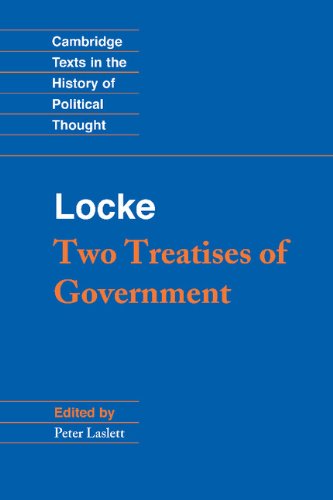10 Best-Selling Political History Books Millions Love
Explore top Political History Books recommended by Juli Briskman, Chris Hayes, and George Conway, valued by millions of readers.






There's something special about books that both experts and millions of readers embrace — especially in Political History, where understanding the past shapes how we navigate today. These 10 best-selling Political History books have captured attention worldwide, offering proven insights into the forces that have shaped governments, ideologies, and societies. As political landscapes shift, these works provide valuable, time-tested perspectives that remain relevant and enlightening.
Experts like Juli Briskman, known for her activism and sharp political commentary, highlight Madeleine Albright's Fascism as a crucial warning for today's democratic challenges. Meanwhile, Chris Hayes, host of MSNBC's All In, praises The Impostors for reframing the modern GOP's evolution, influencing how countless viewers understand American politics. George Conway, an accomplished lawyer and commentator, underscores To Make Men Free for its clear exploration of Republican history, helping readers grasp complex party dynamics.
While these popular books provide proven frameworks, readers seeking content tailored to their specific Political History interests might consider creating a personalized Political History book that combines these validated approaches with your unique background and goals. Such customization offers a focused learning path that complements these expert-endorsed classics.
Recommended by The New Yorker
“Albright has serious credibility on the subject. She witnessed the evils of Fascism firsthand, as her book movingly chronicles. And she effectively makes the case: pay more attention to the signals, subtle and strong. A lot more.”
by Madeleine Albright··You?
by Madeleine Albright··You?
During her tenure as U.S. Secretary of State, Madeleine Albright witnessed firsthand the persistent threat of authoritarianism, which drove her to write this urgent examination of fascism's enduring legacy. You’ll gain a nuanced understanding of fascism’s characteristics and its evolution from the 20th century into present-day political landscapes, including detailed profiles of historical and contemporary leaders. Chapters explore how economic and cultural pressures empower extremist movements, making it clear who benefits and who suffers. If you seek a thoughtful, historically grounded perspective on political threats facing democracy, this book offers critical insights, though it’s less a political manifesto and more a reflective warning drawn from a life in diplomacy.
Recommended by Chris Hayes
Host of MSNBC's All In with Chris
“Steve's book is great and has really framed the way I think about all this.” (from X)
After analyzing decades of political shifts, Steve Benen developed a detailed portrait of the Republican Party's transformation from a governing body into a power-focused entity. You’ll learn how this shift affects policymaking, with chapters unpacking the GOP’s post-policy stance and its consequences on American democracy. The book offers insight into figures like Mitch McConnell and Ted Cruz, illustrating the party's departure from expertise and compromise. This is a sharp examination for anyone seeking to understand contemporary U.S. politics beyond partisan talking points. It’s best suited for readers interested in political dynamics rather than casual political history.
by TailoredRead AI·
by TailoredRead AI·
This tailored book explores proven strategies in political history, focusing on your unique challenges and interests. It examines key events, influential figures, and pivotal movements that have shaped political landscapes, while integrating popular knowledge validated by millions. By blending widely respected insights with your specific background, the content offers a personalized learning journey that dives into themes most relevant to you. This approach reveals connections and patterns that standard texts often overlook, making complex history both accessible and engaging. With tailored emphasis on the methods and outcomes that have demonstrated lasting impact, the book matches your goals and deepens understanding of political dynamics through a focused lens.
by Francis Fukuyama··You?
Francis Fukuyama's decades as a political economist and public intellectual led to this rich exploration of how political institutions evolve and falter. In this volume, you’ll gain insights into the development of modern states from the French Revolution through today’s political upheavals, including detailed analysis of corruption, colonial legacies, and democratic challenges. The book digs into why some societies build strong governance while others struggle, using case studies from Latin America, Africa, and Asia to illustrate these dynamics. If you want to understand the structural roots of political decay and the prospects for democracy globally, this book provides a nuanced and well-researched perspective without oversimplifying complex histories.
Recommended by John Heilemann
Executive Editor, political analyst
“If ever there was a bygone presidential campaign crying out for the Game Change treatment, it’s the one that convulsed America in 1968—and Lawrence O’Donnell delivers the goods in Playing With Fire. Wars at home and abroad, secret plots and assassinations, riots in the streets and punches thrown on the convention floor, poets and protestors, movie stars and Kennedys, hippies, Yippies, and Black Panthers: 1968 had it all and then some. And now it has a chronicler in O’Donnell who brings coherence to the chaos, rendering the story with the crackle and flow of a dynamite Hollywood screenplay.”
by Lawrence O'Donnell··You?
by Lawrence O'Donnell··You?
Drawing from decades of political experience and deep journalistic insight, Lawrence O'Donnell explores the 1968 U.S. presidential election as a pivotal moment in American politics. You’ll gain a detailed understanding of the key players, from LBJ’s unexpected withdrawal to Nixon’s strategic maneuvers, as well as the social upheavals that reshaped the political landscape. The book unpacks complex election dynamics and reveals how a fractured nation set the stage for modern American politics, blending narrative storytelling with incisive analysis. This is a fit for anyone curious about political strategy, election history, or the forces that continue to influence today’s political climate.
by John Calvin, Martin Luther, Harro Höpfl·You?
by John Calvin, Martin Luther, Harro Höpfl·You?
The research was clear: traditional narratives on the relationship between church and state often overlook the foundational perspectives of key reformers. This volume presents unabridged translations of Martin Luther's On Secular Authority and John Calvin's On Civil Government, revealing their nuanced balancing act between ecclesiastical order and divine obedience. You’ll explore how these texts articulate the tension between political authority and religious duty, supported by contextual introductions, a glossary, and bibliography that make complex theological-political concepts accessible. This book suits anyone seeking a grounded understanding of early modern political thought and its lasting influence on secular governance.
by TailoredRead AI·
by TailoredRead AI·
This tailored book offers an immersive journey into political campaigns and history, crafted specifically to align with your background and goals. It explores the evolution of political movements, key historical campaigns, and the strategic decisions that have shaped governments. By focusing on your interests, this personalized guide highlights the most relevant events and concepts, revealing how historical insights inform modern political tactics. You’ll examine influential figures, electoral dynamics, and campaign strategies, all through a lens that matches your unique perspective. This approach deepens understanding by connecting popular knowledge with your own goals, making political mastery both accessible and engaging.
by John Locke, Peter Laslett·You?
by John Locke, Peter Laslett·You?
What happens when a meticulous scholar revisits a foundational political text? Peter Laslett's revised edition of John Locke's Two Treatises of Government offers you a carefully updated lens on Locke's writings, integrating decades of scholarship since the original 1960 publication. You gain a clearer understanding of Locke's political philosophy, especially his views on government legitimacy and individual rights, enriched by Laslett's annotated introduction and an updated bibliography. This edition suits anyone interested in the roots of modern political thought, constitutional theory, or the philosophical underpinnings of democracy, providing context that illuminates Locke’s influence beyond the original text.
by Charles de Montesquieu, Anne M. Cohler, Basia Carolyn Miller, Harold Samuel Stone·You?
by Charles de Montesquieu, Anne M. Cohler, Basia Carolyn Miller, Harold Samuel Stone·You?
Montesquieu's decades of influence in political philosophy culminate in this edition, which brings his pivotal 18th-century work back into academic focus with a fresh English translation. You’ll explore his nuanced arguments on the separation of powers and the social laws that govern human societies, unpacked with annotations that clarify his use of sources rather than fixating only on familiar passages. This makes the book a vital resource if you seek deeper insight into early Enlightenment ideas and their impact on constitutional frameworks, especially the American Constitution. While dense, its detailed approach benefits political historians, legal scholars, and anyone curious about the intellectual roots of modern governance.
by Oliver Stone, Peter Kuznick·You?
by Oliver Stone, Peter Kuznick·You?
Oliver Stone, known for his provocative filmmaking, teams up with historian Peter Kuznick to challenge the standard narratives surrounding American history. Their book digs into newly declassified documents and archival research to question the myths of American exceptionalism and reveal the often overlooked consequences of U.S. foreign and domestic policies. You’ll encounter detailed examinations of events such as the unnecessary atomic bombings and the Cold War’s true instigators, which shift the perspective on America’s global role. This book suits those willing to revisit familiar historical events through a critical lens and who seek a deeper understanding of how power and ideology have shaped modern America.
by George Stephanopoulos, Lisa Dickey··You?
by George Stephanopoulos, Lisa Dickey··You?
George Stephanopoulos leverages his unique vantage point as a former senior advisor in the Clinton administration and seasoned political journalist to pull back the curtain on the White House Situation Room. You gain an insider’s detailed perspective on critical moments where presidential decisions shaped history, from Kennedy’s assassination attempt to the 9/11 attacks and the raid on Osama Bin Laden. The book offers vivid minute-by-minute transcripts and personal accounts that sharpen your understanding of crisis management at the highest level. If you want to grasp how political power is exercised in moments of extreme pressure, this book delivers a rare, fact-rich glimpse into the nerve center of American leadership.
Recommended by George Conway
Lawyer and cancer survivor
“@HC_Richardson @historynerd34 The good news is, someone wrote a great book on the subject.” (from X)
by Heather Cox Richardson··You?
by Heather Cox Richardson··You?
Heather Cox Richardson, a history professor at Boston College known for her daily newsletter reaching over half a million subscribers, explores the complex evolution of the Republican Party from its founding to the Great Recession. You’ll gain insight into how the party’s shifting ideologies have influenced economic opportunity and social justice, tracing figures from Abraham Lincoln’s egalitarian vision to Ronald Reagan’s pro-business policies. The book unpacks historical cycles where government efforts to protect middle-class interests repeatedly faltered against concentrated wealth, offering detailed chapters on key Republican presidencies and their impacts. This book suits those eager to understand the interplay between political ideology and economic power in American history.
Proven Political History Methods, Personalized ✨
Get popular Political History insights without generic advice that misses your focus.
Trusted by thousands of Political History enthusiasts worldwide
Conclusion
These 10 books collectively offer a rich tapestry of Political History, blending critical analyses of authoritarianism, transformative elections, and foundational political philosophies. If you prefer proven methods grounded in historical scholarship, start with Political Order and Political Decay for a deep dive into state development and governance. For validated approaches to contemporary dynamics, pair The Impostors and Fascism to understand modern political shifts and threats.
Alternatively, you can create a personalized Political History book to combine proven methods with your unique needs. This approach lets you focus on the specific eras, themes, or political movements that matter most to you. These widely-adopted approaches have helped many readers succeed in grasping the complexities of political history and its ongoing impact.
Frequently Asked Questions
I'm overwhelmed by choice – which book should I start with?
Yes, it can be daunting. For a broad but insightful start, consider Political Order and Political Decay by Francis Fukuyama. It offers a solid foundation on how political institutions develop and decline, setting the stage for understanding other works in this list.
Are these books too advanced for someone new to Political History?
No, many books like The Situation Room and Playing with Fire present complex events through compelling narratives accessible to newcomers. They combine storytelling with analysis, making political history engaging without requiring prior expertise.
What's the best order to read these books?
Begin with broader historical perspectives like To Make Men Free and Montesquieu, then move to contemporary analyses such as The Impostors and Fascism. This sequence builds foundational knowledge before tackling modern political dynamics.
Do I really need to read all of these, or can I just pick one?
You can certainly pick based on your interests. For example, if you're fascinated by elections, Playing with Fire is a focused choice. However, reading multiple titles offers a richer and more nuanced understanding of political history's complexity.
Which books focus more on theory vs. practical application?
Books like Locke and Montesquieu delve into political theory and philosophy, while The Situation Room and Playing with Fire provide practical insights into political decision-making and electoral strategies.
Can I get a Political History book tailored to my specific interests?
Absolutely! While these expert-recommended books cover proven approaches, a personalized Political History book can complement them by focusing specifically on the topics and depth you prefer. You can easily create your own tailored book to match your unique learning goals and background.
📚 Love this book list?
Help fellow book lovers discover great books, share this curated list with others!
Related Articles You May Like
Explore more curated book recommendations









